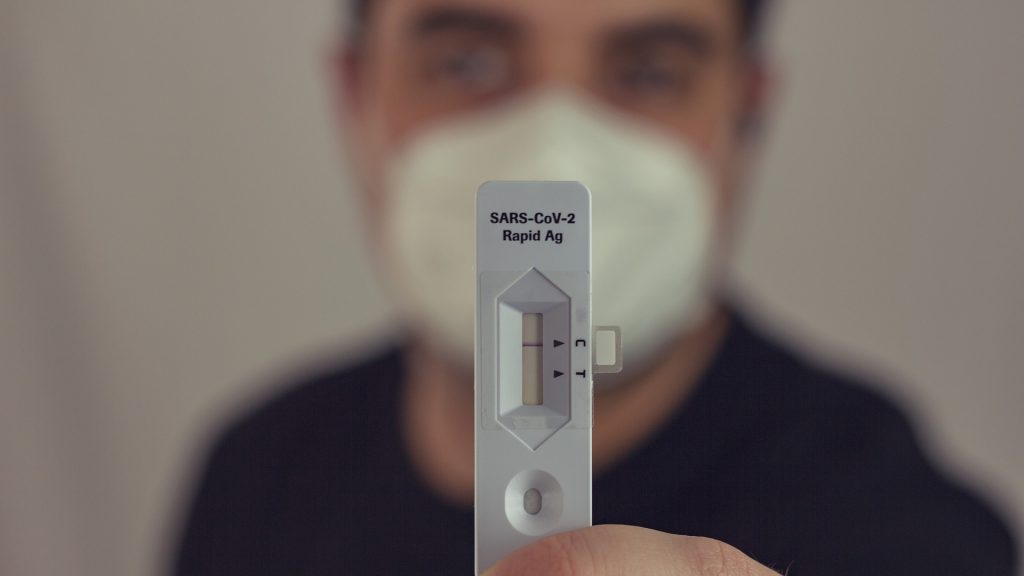Why Healthcare Workers Are Scrambling To Find New Ways To Treat Long COVID
Cases of long Covid are becoming more common, affecting adults and children alike, prompting healthcare officials to significantly increase their efforts of finding better, more effective ways to treat it.

Long COVID, a significant public health concern affecting adults and children alike, has prompted healthcare workers to frantically seek new treatment methods. Medical professionals, researchers, and hospitals are joining forces to develop innovative therapies and interventions for this growing challenge to improve patients’ quality of life and prevent long-term complications.
During a recent virtual event hosted by U.S. News & World Report, Dr. Laura Malone, co-director of the Pediatric Post-COVID-19 Rehabilitation Clinic at Baltimore’s Kennedy Krieger Institute, provided valuable insights into long COVID. She described the condition as a lingering or sometimes new set of symptoms persisting for at least four weeks following an acute COVID infection. However, she acknowledged that precise definitions may vary. This information is essential in understanding and addressing the impact of long COVID on affected individuals.
The Impact of Long Covid on Children’s Lives
Long COVID symptoms can disrupt children’s daily lives, interfering with their ability to attend school and participate in extracurricular activities. This disruption can lead to educational setbacks and long-lasting consequences for their futures. In addition, Long COVID can negatively affect children’s emotional and mental well-being, resulting in feelings of isolation, anxiety, and depression.
Twelve-year-old Bree Saligumba from California has faced the struggles of long COVID personally. US News reports that Bree, once an “A” student and gifted athlete, contracted a mild case of COVID in March 2020. Following her infection, she suffered many symptoms, including rashes, pain, shaking, confusion, blurred vision, brain fog, and even fainting at school for 12 minutes. Bree’s mother, Marci Saligumba, recounts her daughter’s disjointed and uncoordinated healthcare journey, with daily medical appointments and some healthcare providers expressing skepticism about long COVID being the root of her issues.
Bree’s story underscores the urgent need to increase awareness about long COVID. As Dr. Uzma Hasan from Cooperman Barnabas Medical Center pointed out to US News, “We have our work cut out for us to create awareness that this is the real deal.”
Dr. Amy Edwards, director of the Pediatric COVID Recovery Clinic at UH Rainbow Babies and Children’s Hospital, also shared that parents and patients often feel immense relief when someone genuinely listens to their long COVID concerns. These experiences highlight the importance of fostering understanding, support, and effective treatments for individuals grappling with long COVID.
Challenges Faced by Healthcare Workers and Public Health Measures
Healthcare workers treating long COVID face significant challenges due to limited resources and funding. As demand for care increases, healthcare systems must allocate resources effectively and support the development of new treatments. Although the COVID-19 pandemic has been declared “over,” its aftermath has put a substantial strain on healthcare systems, which has made it challenging to balance addressing patients’ immediate needs with pursuing solutions for long COVID.
Supporting Research and Funding for Long COVID Initiatives
Supporting research and funding for long Covid initiatives is crucial to better understanding the disease and developing effective treatments. However, it is a relatively new condition, and there is still much to learn about its causes, mechanisms, and long-term effects. Investing in research will help to fill these knowledge gaps and identify new therapeutic targets.
Funding is also necessary to support clinical trials and other research studies that can test the safety and efficacy of new treatments. These studies are essential to determining whether a treatment is effective, safe, and beneficial for patients. Without sufficient funding, it is difficult to conduct these studies, and potential treatments may not be thoroughly evaluated.
In the meantime, Dr. Edwards is using a comprehensive approach to treat long COVID. Her team aims to control symptoms and improve patients’ quality of life by regulating the autonomic nervous system with dietary tweaks, medications, and mental health services. Additionally, an autonomic rehabilitation program has shown success for some patients. By taking a multifaceted approach, Dr. Edwards is making strides in the treatment of it.




